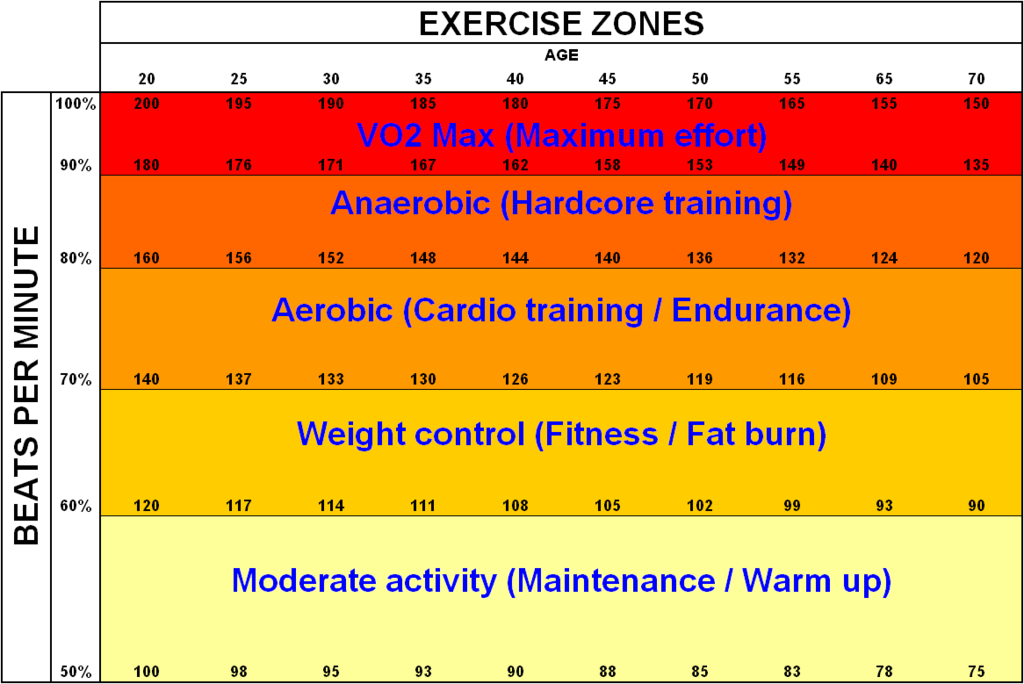I remember when I was at the high school and I ran a race on an unknown route. Since I didn't want to run out of energy before the finish line, I was pretty relaxed (not too much) during the first part and, when the people stopping the traffic told me that I was less than a kilometer far from the finish, I pushed as hard as I could and I was worn out when I arrived. However, when I go running and try to set my personal record on the same old route, since I know it very well, I'm able to manage my energy and my pace is quite constant.
Its all about the pump, the heart. It's the only way I know to accurately measure the work you are doing at any given time.
--
For you younger guys that mentioned cardio , your words make sense to me when you say it helps your stamina and endurance... We all have a cardio if we are breathing and again, AjaxAuto is my baseline to build off of ... He works and rides and wins races.. Success!! Now we'll build off his success..
Here is an example of finding the heart rates that fit you and will allow you to train hard and recover and and make progress in fitness and reduce the chance of injury.
Example for someone with a HRmax of 180 (age 40, estimating HRmax As 220 − age):
65% Intensity: (220 − (age = 40)) × 0.65 → 117 bpm
<-- Upper beats limit for recovery day
85% Intensity: (220 − (age = 40)) × 0.85 → 153 bpm
<-- Lower level you need to train at to get a benefit (80% is probably OK here also)
-
These are my own words are should be close to what is accepted by the masses on training without being too confusing for these new concepts..
We all know what it feels like when you run down the road as fast as we can. We have to stop and our muscles hurt some and we are out of breath. Waste products (exhaust) from our cells making energy, has produced lactic acid in our blood(?) and our body cannot function with so much of it in our bodies. How do we raise the level of lactic acid in our bodies that we can tolerate and continue to function at a high level? Train at a pace where we have lactic acid in our bodies as follows:
First, we have to find the correct heart rate (HR) to work at .. That 80-85% level of your MAX HR is the place. At this level you have plenty of lactic acid in your blood but you should be able to handle it. The time you remain at this high level is a variable I think or just can't remember now. But by holding that HR and forcing your body to adapt to all that lactic acid, your body will (over time) get better and better at dealing with the stuff and you will be able to hold a higher HR for a longer period.
Just a little-bit like that brain training you were doing with that driving simulator ... You have reduced the oxygen circulating in your body, stressing it, and forcing it to adapt to the stress level and your brain work. The body can be trained in such ways ... (Go a little farther and you can get in brainwashing.)
--
Here's the HR zones ... I had forgotten these terms till I read them again... Middle 3 is where most of us are at with the recovery training at level 4. This is where I made my mistakes. I always over-trained on my recovery days so I never really recovered and this screwed my hard days work and over and over till I had an injury. After I got a HR meter and watch my HBs on my training days, I would literally have to walk on my easy\recovery day to keep my HR down. And this worked for me. I got faster for sure ...
Anaerobic - without oxygen -- The lactic acid work I was referring to above.
Aerobic - with oxygen -- fats burn easiest with oxygen present ... If you are trying to burn fat, best to stay aerobic.
If you progress along these lines, your runs\training will be something specific in the 80-85% range and then a recovery run at the 60-65% rate and anything else cardio must fit into this hard\easy routine or it is just slop effort for you.
This is a hard/easy method for work outs. Hard one day, easy the next. Might be others but especially for us older people,
the recover day is where you make progress. Without it and you will at best limit your progress ..
That slight effort you guys mentioned above on exercising a day
before the race is also known to be beneficial but a little delicate (don't over train here). I think I remember that it raises your red-blood cell count and these cells are what carry oxygen to the cells... PROs pull out their blood cells before a race and then inject it back into their bodies right before race day to up the red-blood cell count. Pretty sure this is illegal.
This training is all pointed at running but will cross over to riding a bike ... I've never read anything on HR training on a bike but it will fall under these guide lines I'd think.
Confused? Send me a PM if necessary...Keep up the good work for a decade or 2 or as long as possible ... It pays well down the road.
Or check the web ... This stuff is written all over the place ...


